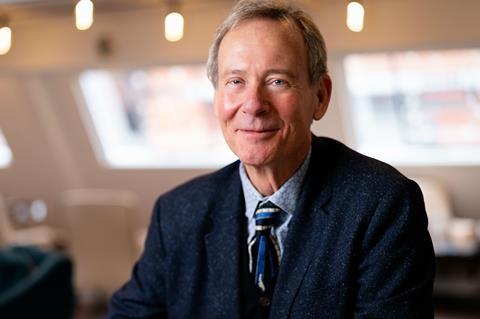
Directors UK, the body representing around 7,000 UK screen directors, has called for the government to provide “proportional income support” to freelance and self-employed workers in the film and television industries in the wake of the coronavirus crisis.
In a letter to UK Chancellor of the Exchequer Rishi Sunak, Directors UK CEO Andrew Chowns said the emergency measures introduced by the government earlier this week to support small businesses would “help those production companies that hire our members,” but that this “will not flow through to the freelance workers who provide the production resource for these companies.”
He said the solution would be the introduction of “a form of proportional income support that would guarantee an income to them that is proportional to their recent average income.” This would mean “other reliefs and benefit adjustments would not be necessary and that a form of basic economic stability could be maintained while the outbreak is dealt with.”
He adds: “Crucially we must ensure [freelancers] don’t leave the production workforce, so that when the public health crisis is over they are able to return to production quickly and the creative economy can be reactivated speedily to resume generating income for the UK economy.”
They also urged the government to “make it possible for freelance and self-employed people to access the same level of sickness pay and protection as is available to all other citizens.”
The letter comes as broadcast union Bectu released figures from a survey saying that 46% of respondents had already lost money as a result of the coronavirus crisis, with most TV and film production set to shut down worldwide.
Chowns adds: “This week we have seen the announcements of the BBC Continuing dramas stopping production, and Netflix has suspended its productions, among many others not being publicised. We anticipate that almost all non-news production activity in film and TV will have to cease within days. These are unprecedented times.”
Read the full letter below.
Dear Chancellor,
I am writing on behalf of Directors UK, the professional association representing over 7,000 screen directors, to draw your attention urgently to the impacts of the COVID-19 pandemic on freelance and self-employed workers in the film and television industries and to ask you to consider further emergency measures to support those working outside of typical employment structures.
The UK film and television production sectors are a vital and growing area of the UK economy. Film and television production is reliant upon a high percentage of freelance and self-employed workers compared to the UK average. Almost all of our members are self- employed freelancers.
The nature of the UK production industry means it is a collaborative activity with crews working on locations that require travelling around the country and often overseas, interacting with one another and members of the public. This nature of working is directly contradictory to government advice to limit social interactions, work from home and self- isolate as necessary in order to safeguard public health.
The impact of COVID-19 on the production sector is immediate and acute and we are seeing productions being shut-down daily as it is almost impossible for them to continue under current restrictions. This week we have seen the announcements of the BBC Continuing dramas stopping production, and Netflix has suspended its productions, among many others not being publicised. We anticipate that almost all non-news production activity in film and TV will have to cease within days. These are unprecedented times and many of our directors and their crews are facing long periods of time without work. As self-employed freelancers they are not able to access many of the benefits and support available to employed workers.
We welcome the emergency measures you have introduced to support small businesses, which should help those production companies that hire our members. We are, however, expecting that this support will not flow through to the freelance workers who provide the production resource for these companies, so there is now a critical need for similar emergency support measures to be introduced for self-employed workers who are worried, not just about losing their current work, but at the prospect of facing months without income as productions are suspended longer term and, for some smaller productions, indefinitely.
We need to ensure that these workers are supported and compensated during this time to ensure that they don’t fall into poverty or lose their homes due to loss of income. But crucially we must ensure they don’t leave the production workforce, so that when the public health crisis is over they are able to return to production quickly and the creative economy can be reactivated speedily to resume generating income for the UK economy. Our workforce is well-used to reacting quickly to changing circumstances. In order to do this we need to ensure they are supported during this period of inactivity.
For our freelance workers the most important form of support that we advocate is the introduction of a form of proportional income support that would guarantee an income to them that is proportional to their recent average income. If a form of proportionate income were made available to freelancers we think this would mean that other reliefs and benefit adjustments would not be necessary and that a form of basic economic stability could be maintained while the outbreak is dealt with. We would also urge you to make it possible for freelance and self-employed people to access the same level of sickness pay and protection as is available to all other citizens. We are in communication with our members about other proposals and we will channel their responses to you as soon as we can do so with clarity.
We are ready and willing to work with you to help you identify and develop appropriate support packages, and to share the experiences of our members.
Yours sincerely
Andrew Chowns CEO, Directors UK

























No comments yet